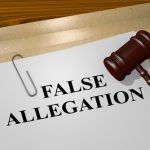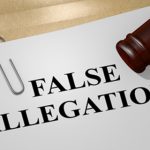Man Calls Police Over Maccas Mix-Up

53-year old Leslie McDonagh says he suffers from a “severe allergy” to onions.
So the Englishman was less than impressed when the Big Mac he ordered from a McDonald’s store in Manchester one Friday night came with onions after he specifically told staff the vegetable would make him sick.
Mr McDonagh, who had consumed several beers earlier that day, was so enraged by the menu mix-up that he called the police, and even challenged the restaurant manager to a fist-fight.
Police attended the store and advised McDonagh that getting the “wrong meal” was not a valid reason for contacting emergency services. And when the restaurant manager informed officers about the patron’s aggression, things went from bad to worse.
McDonagh was asked to immediately leave the premises, but instead fell to the floor and grabbed the officer’s leg. A scuffle ensued during which McDonagh spat in the officer’s face.
He was arrested and charged with assaulting an emergency worker and being drunk and disorderly in a public place.
The matter eventually came before Manchester Magistrates Court where the defendant pleaded guilty to both charges.
During the sentencing hearing, McDonagh’s criminal defence lawyer submitted that her client “… now realises that this was not a police matter” and is “quite clearly utterly embarrassed and ashamed”.
She emphasised that her client’s actions arose in the context of his level of intoxication and the potentially serious consequences for him of eating onions.
The magistrate saw fit to fine McDonagh £190 and ordered him to undertake a 12-month community order with 120 hours of unpaid work.
Making improper emergency calls in Australia
The Criminal Code Act 1995 (Cth) applies across Australia.
Section 474.18(2) of the Act prescribes a maximum penalty of three years’ imprisonment for a person who makes a call to an emergency services number where:
- It is made other than for the purposes of reporting an emergency, and
- The call is a vexatious one.
Subsection (3) states that in determining whether a call is vexatious, the court must have regard to:
- Its content,
- The number, frequency and content of any previous calls, and
- Any other relevant matter.
In New South Wales, section 547B of the Crimes Act 1900 additionally makes it an offence to engage in ‘public mischief’.
The section sets down a maximum penalty of 12 months in prison and/or a fine of $5,500 for any person who ‘knowingly makes to a police officer any false representation that an act has been, or will be, done or that any event has occurred, or will occur, which act or event as so represented is such as calls for an investigation by a police officer’
According to statistics from the Judicial Commission of New South Wales, the distribution of penalties handed-down for the offence of public nuisance is as follows:
- Section 9 Bond (now community correction order): 40%
- Fine Only: 27%
- Section 10 Bond (now conditional release order without conviction): 13%
- Suspended Sentence (no longer available): 7%
- Prison: 7%
- Community Service Order (now community correction order): 4%
- Section 10(1)(a) Dismissal: 1%
The average prison sentence is 8 months imprisonment, and the average non-parole period (the minimum prison term that must be served) is 4 months.
It has been reported that back in 2012, a man was charged with public mischief after calling NSW emergency services to report that chicken from a takeaway shop that his child was just about to consume was contaminated.






